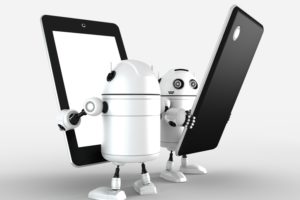Introduction:
The field of artificial intelligence is well-known for better results in technology. It is followed by huge corrections in funding and expectations. Researchers crashed it into major technological roadblocks. This time is different. We have seen a proper AI revolution for five years. This contains big data and exponential advances in computer hardware. This makes machine learning algorithms really useful. The most useful applications are in digital ad targeting. But consumers are benefiting from better search results like YouTube and Spotify. They are getting benefits from better traffic predictions, and voice assistants with near-perfect speech recognition. You can take the photo of a street sign in the foreign language. Google Translate app will provide a translation. Japan team up for robotics
How smart is today’s artificial intelligence?
The future is here. These advances have uprooted our assumptions. Then what computers can and cannot do. If they can learn from data, isn’t it just a matter of time before they surpass human performance on everything? Will we all lose our jobs? What if they turn on us?! The conversation has ventured beyond the state of the art. Not only we go a long way from general artificial intelligence. There’s no clear path to the specific goal right now. Today’s AI applications are powered by custom engineering and data preparation. This will accomplish a single task. These algorithms are less in “artificial intelligence”. Computer Scientist John Launchbury (formerly of DARPA) calls “spreadsheets on steroids” as a powerful tool. At present, AI is entering into our everyday life like check-scanning machines and GPS navigation.
Are we far away from making intelligent machines? Hari Sreenivasan reported on the ethical considerations of artificial intelligence as part of the Breakthroughs series. In 2016, Chinese researchers developed a new way to measure machine intelligence. They used the simple metric to calculate “IQ scores” for some well-known AI systems. The results of this study indicated that the Google’s Brain had increased its “IQ” score by 78 percent. It increased just in two short years between 2014 and 2016. For measuring human intelligence, there is no more widely accepted metric than the IQ score. It makes sense to use the IQ metric. While talking about the progression of AI technology, it is very smart at the given moment. However, according to at least one prominent AI industry expert, Dr. Neil Yager, such comparisons may be missing the point entirely.
If current AI applications trends are in any indication, Dr. Yager had something to do. In this vein of thinking, the only true artificial intelligence is “general” artificial intelligence – that which is capable of learning to solve multiple problems and complete multiple tasks as they become necessary. The bar for intelligence, for what can really be considered “smart” is (and always will be) the human brain. Until AI can mimic the capabilities of the brain, it can’t be considered smart. Dr. Yager thinks we just might be. “Is there an algorithm that when run will spontaneously develop consciousness? This is a rich and fascinating area of study.
However, it isn’t relevant to present day AI. The AI that is being used all around us is a collection of techniques that have been developed over decades. They have been designed to solve specific types of problems, and to that end, they have achieved tremendous success. The question of whether or not they can be classified as “intelligent” is academic.” There are researchers trying to crack the problem of General AI. There has been some progress, but it is moving slowly, and Dr. Yager expects developments in this area to continue on a much longer timeline. “My feeling is that we have a long way to go before making significant progress on general AI. Breakthroughs are necessary, and no one knows what they will look like or when they will happen. I don’t think it will happen in my lifetime, but being proven wrong is one of the most exciting things I can imagine. But to be honest, it has little relevance to my day job in applied AI research and development.”




